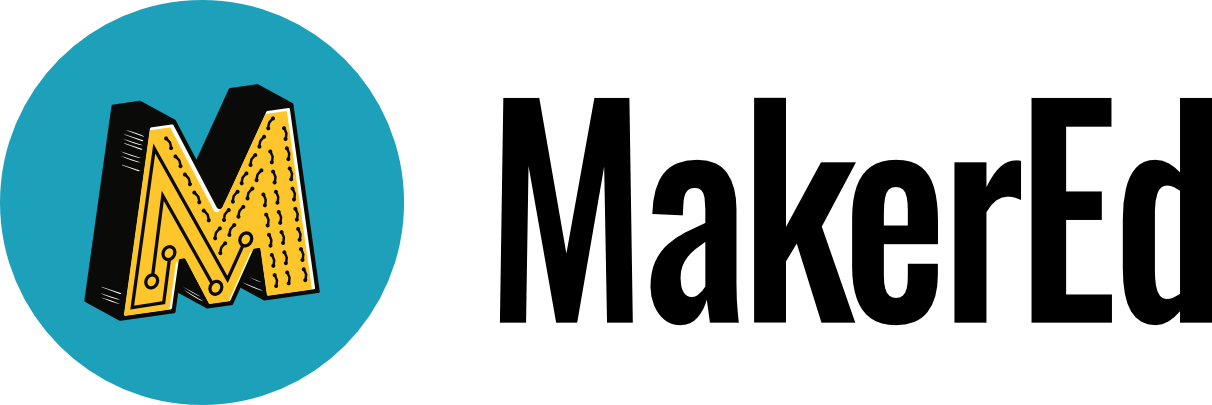Category: Workshops
-
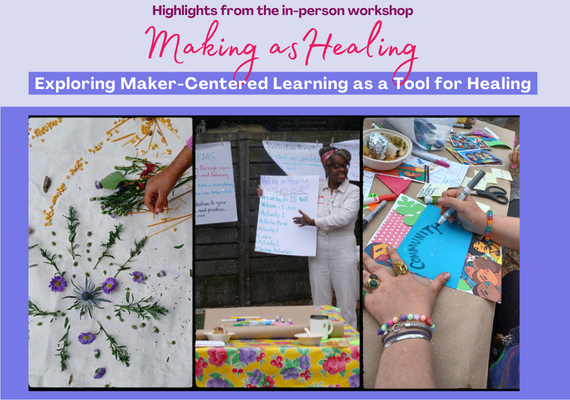
Making as Healing: Reflecting On An In-Person Workshop for Oakland Educators
The last several years have been incredibly difficult for educators. On June 4th, we celebrated a milestone by having our first in-person event since the start of the Covid-19 pandemic. […]
-
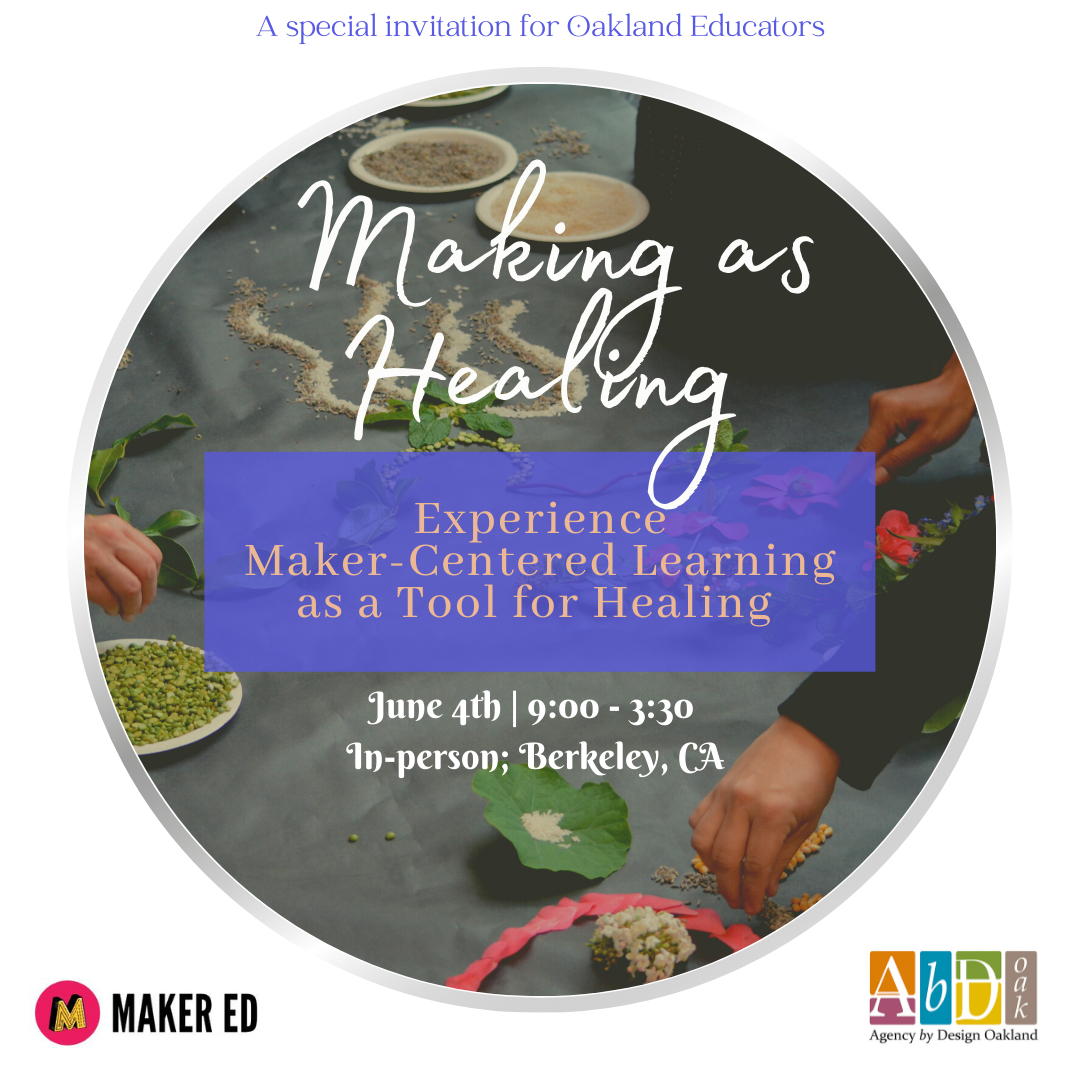
Calling All Oakland Educators: Making As Healing Workshop
Are you looking for ways to revive, restore, and reset as you move into summer? Join Maker Ed and Agency by Design Oakland in this day-long, in-person workshop where we […]
-
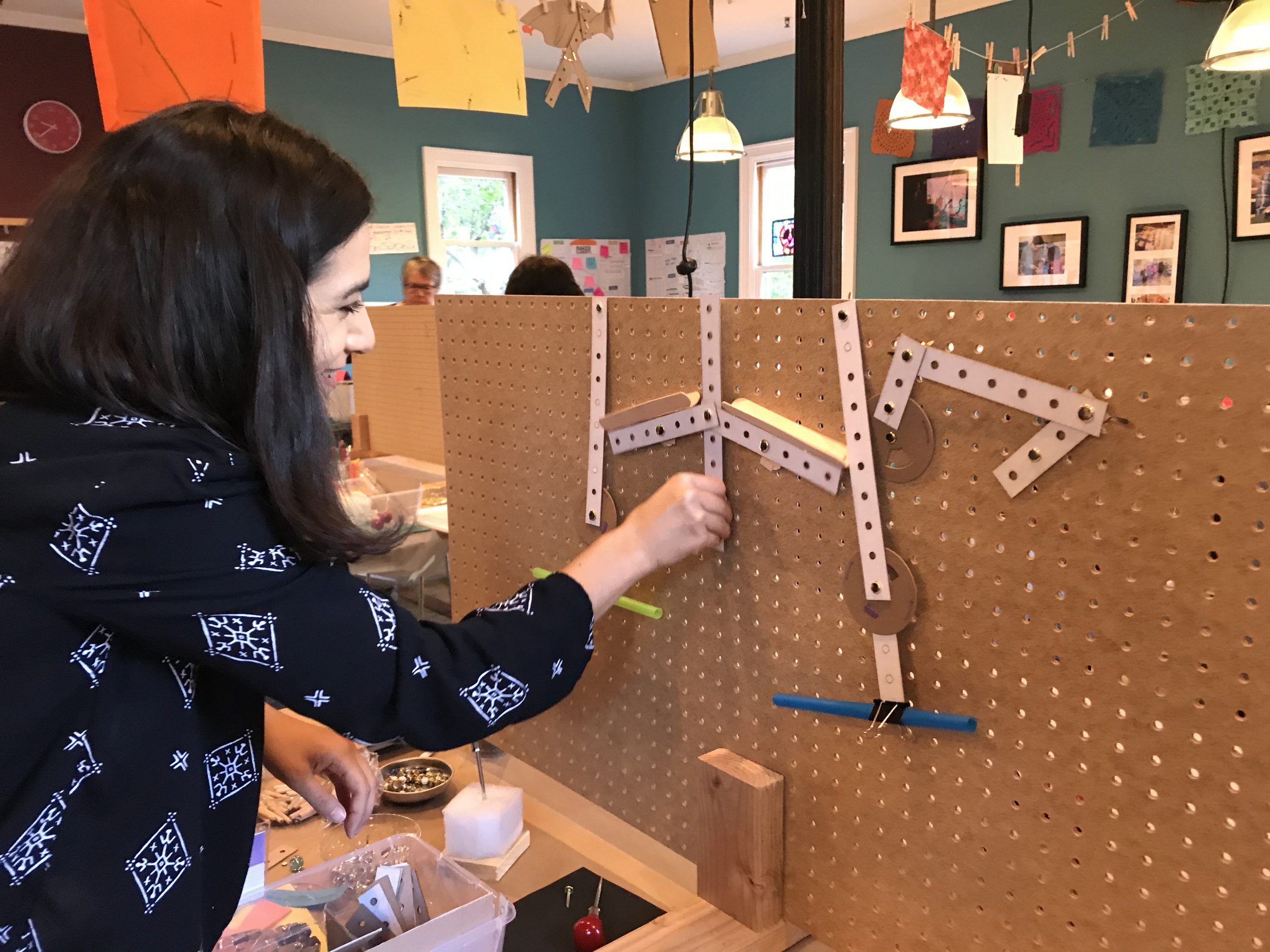
Wheel of Documentation: Workshop Takeaways
How can documentation support assessment? How do you know when learners know? What types of learning do we value, but don’t normally assess? In our recent two-day, hands-on workshop, Documenting for Assessment, we explored these questions while developing a variety of tools and strategies to make learning visible and broaden our notion of what is…
-
Examining Social Justice Themes through micro:bit and Scratch
Weaving together themes of social justice with ELA standards, block-based programming with Scratch, and physical computing with micro:bit, this series of linked activities from our Approaches to Maker Education workshop showcased a learning progression that integrated all three of our Approaches to Curriculum Integration: Tinkering to Discover, Making to Learn, and the Application Project. Read…
-
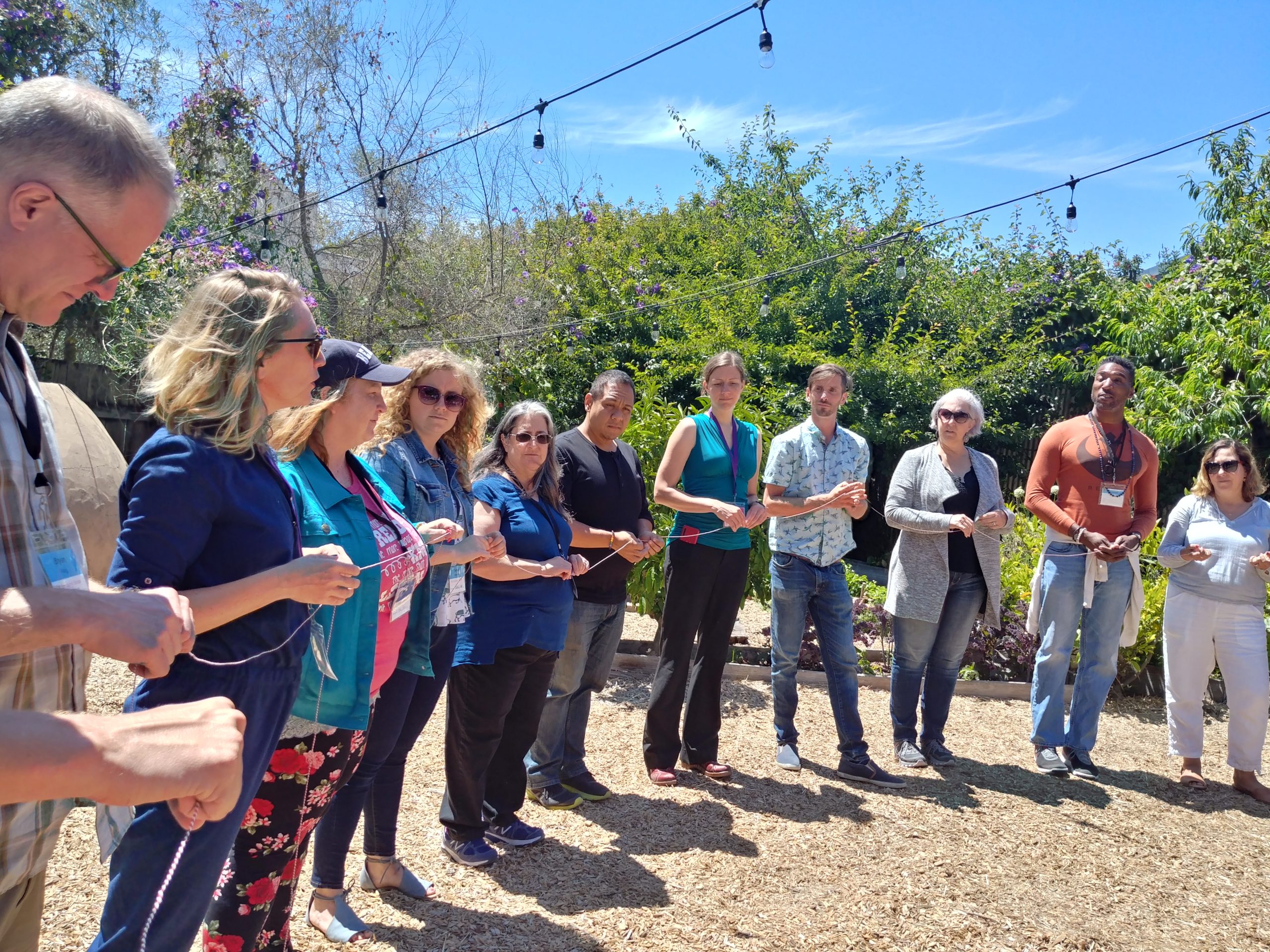
Institute Day Five: Equity Maps, Resources, and Final Reflections
After working all week on identifying resources around curriculum integration, program development, and assessment through the lens of equity and sustainability, we had the opportunity to share and present all of our work with each other. Read more…
-
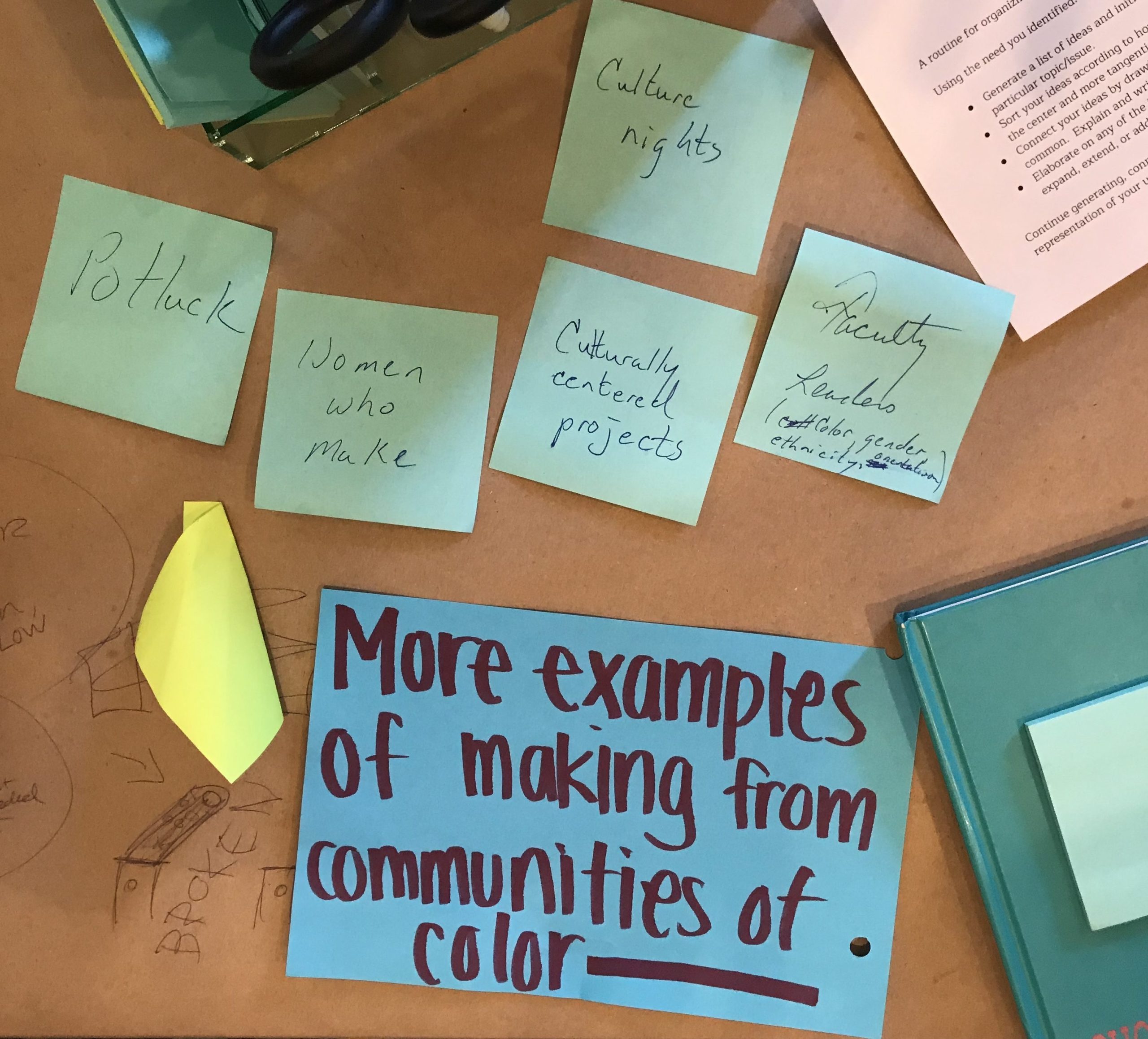
Institute Day Four: Creating and Prototyping Resources
On Day Four of our summer Institute, we started the morning with an equity session centered on the Ready for Rigor framework provided in Culturally Responsive Teaching and the Brain by Zaretta Hammond. This framework outlines four areas of practice of culturally responsive teaching that enable us to support learners to become more independent: awareness,…
-
Institute Day Three: Culture, Strands, and Ideation
In order to reflect on how culture impacts our learners, we started Day Three of our Summer Institute by asking participants to consider their own cultural roots through Zaretta Hammond’s representation of the culture tree. Based on this reading and our equity session on Day Two, participants created a physical representation of their own culture…
-
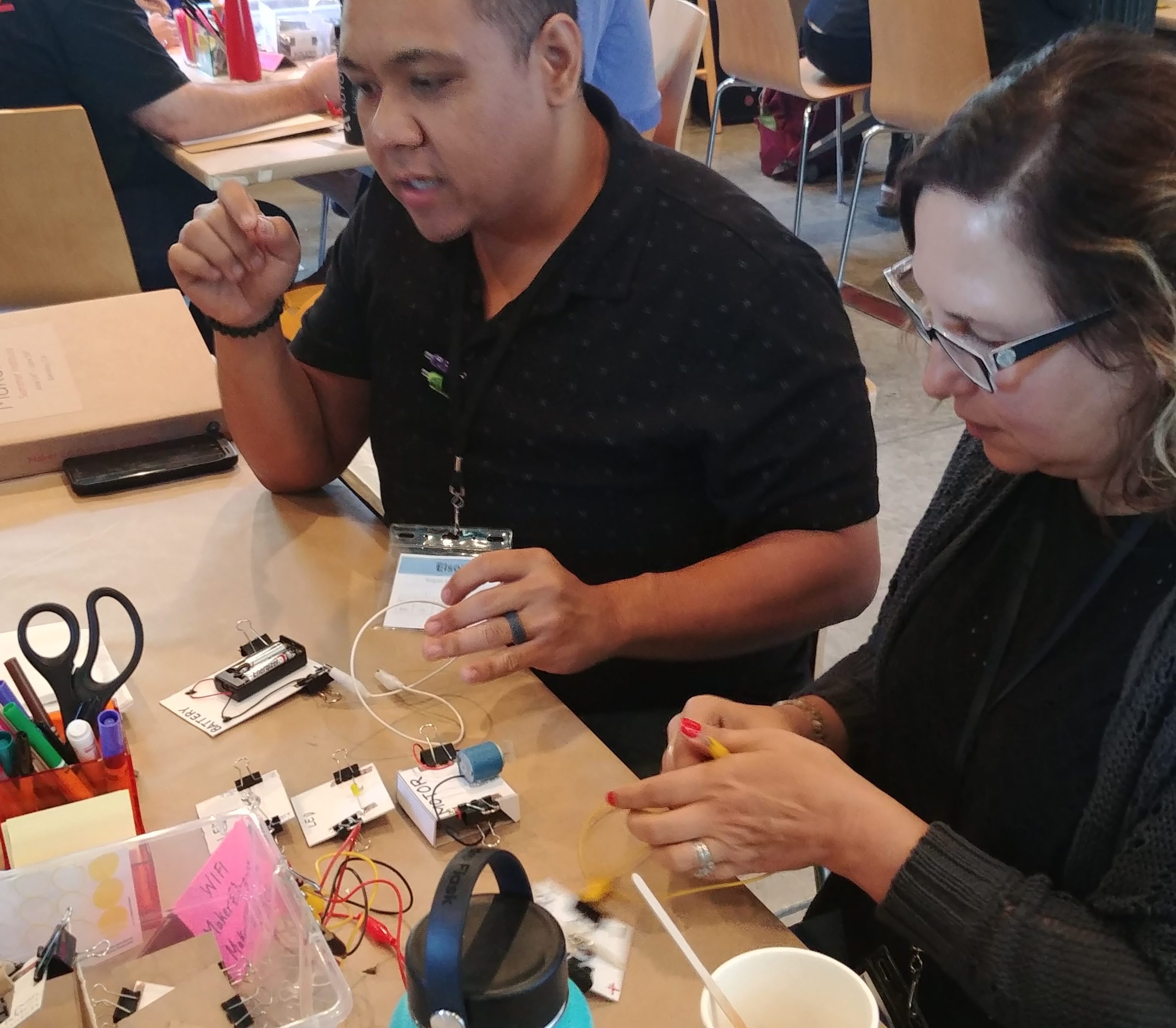
Institute Day Two: Tinkering, Values, Identity, and Strand Debuts
We believe that starting with an understanding of why we value maker education is important. So after surfacing our intentions as maker educators on Day One of our Summer Institute, we participated in a Values Mapping activity as a whole group on Day Two. Then, participants split up into one of their choice-based Learning Strands: Program Development…
-
Institute Day One: Introductions and Intention-Setting
Yesterday we welcomed 32 educators from 8 states to our Community Studio for our inaugural summer Institute! We’re so excited to learn in collaboration with our new colleagues for the next 4 days. Here are some photos from our first half-day of programming, during which participants got to know each other, shared some snacks, and…
